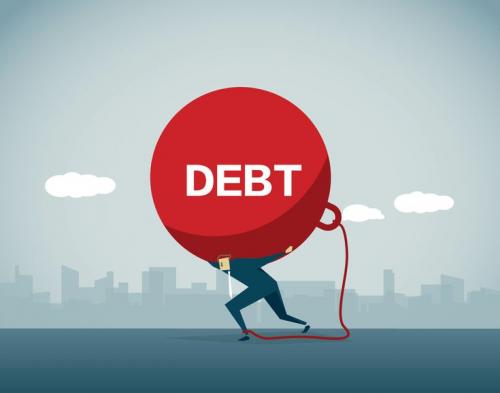When Debt is Considered Too Much

Repaying the debt is not as easy as borrowing money. Even though you
have a short-term loan, it sometimes becomes hard to pay off the loan on time.
Most of the people think that small loans are much more manageable than
long-term loans because you can get rid of the burden at once as you have to
repay the loan in a lump sum, but a few of you manages to settle all dues on
time.
Some people end up adding up the cost of the loan because of interest
penalties and late payment fees. Debt always causes stress, contributes to
depression, and pulls apart families, but most of the people have changed the
outlook toward debt. It seems reasonable to have thousands of pounds as debt in
your name, but the fact is it is not healthy at all.
Of course, you cannot say that you would not need to borrow money ever.
You can prepare a budget to meet all of your regular expenses, but sometimes
unforeseen expenses catch you on the wrong foot.
You may need to borrow money to fund them because you lack savings, but
the problem is you do not understand how much you can afford and when you
should stop from borrowing money no matter what. You keep taking on debt and
eventually realise that you cannot pay off the debt. This raises the question
when debt is considered too much debt.
If you want to be financially secure, you should have debt as low as
possible. To know if you have debt too much, you will need to analyse a
debt-to-income ratio. According to FCA guidelines, you should keep your
debt-to-income ratio as low as 45%.
If you have debt beyond 45%, you will struggle to make repayments. As a
result, you will end up rolling over the loan or robbing Peter to pay Paul. The
most common signs of too much debt include but not limited to:
·
You are living from paycheque to paycheque.
·
You often use credit cards to make purchases.
·
You do not have an emergency cushion, nor do you have
a savings account.
·
Your debt balance continues to be the same despite
making repayments.
·
You cannot contribute to retirement funds because of a
lack of money.
·
The total amount of debt is more than 50% of your
income.
Find out a debt-to-income ratio
You will have to figure out a debt-to-income ratio to ensure you are not
in a debt trap. A debt-to-income ratio suggests that the amount of debt you
have to pay against your income. The higher the ratio, the poorer your
financial condition will be.
A good rule of thumb says that you should keep the debt-to-income ratio
as 30%. To calculate the ratio, you will have to add up the total cost of the
debt and then divide it by your total monthly income.
Remember that the total cost of the debt also includes fixed expenses
like rent, credit card payments, child support, and the like. It cannot cover
expenses like utility bills, broadband, subscriptions, insurance, groceries,
and so forth.
These expenses do not add in because they are not fixed. If the total
debt is £1000, and your total monthly income is £4000, the debt-to-income ratio
is 25% (1000/4000). This is an ideal ratio. Lenders will not treat it a high
ratio. Knowing debt-to-income ratio can also help you the likelihood of having
a loan signed off on.
If you need to apply for a very
bad credit loan, the lender may reject your application due to the high
debt-to-income ratio. To avoid rejections, make sure that you keep it as low as
possible.
What to do if you have too much debt?
If it is hard to pay off debt, you should talk to a financial advisor.
You can consider debt management plans and debt consolidation loans. However,
the financial advisor will recommend any of the options after reviewing your
financial situation.
The bottom line is debt can take a toll on your financial life. It
should not be more than 30% of your income ideally, but you can manage to pay
back if it is not more than 45%.
Description: Debt
is considered too much when it is more than 454% of your income. This blog
discusses the sign of too much debt and ways to get rid of them.




Comments